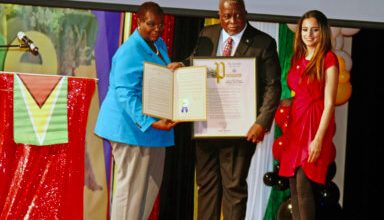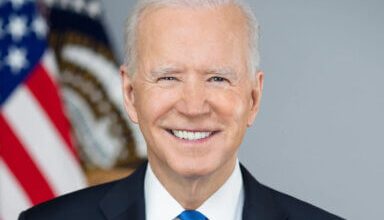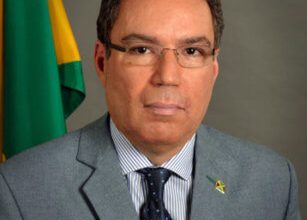Harvard names New York City-born Haitian 1st Black prez
For the first time in its 386-years of offering Ivy League education to students, on July 1, Harvard University named 54-year-old Claudine Gay, the 30th president of the institution “devoted to excellence in teaching, learning and research.”
Significant to the appointment Gay emerges the first Black and only second female to helm the oldest university in America – which was established in 1636.
A scholar and intellectual, the social scientist graduated from and previously served as dean of the Cambridge and Boston-based institution which enrolls 200-000 degree candidates.
On the announcement of her selection last December, the daughter of Caribbean immigrants from Haiti said:
“I can’t help but think of a much younger version of myself — a first year graduate student moving into Haskins Hall lugging the things that seemed most essential to my success at the time: a futon, a Mac Classic II, and a cast iron skillet for frying plantains.”
“That Claudine could not possibly have imagined that her path would lead here, but I carry forward both her excitement and her belief in the infinite possibility of Harvard.”
On that same occasion the pioneering Black woman explained that her parents met as students at City College of NY. She said her mother sought a career as a registered nurse while her father pursued being a civil engineer with the US Army.
Gay spent much of her childhood first in New York where she was born and then in Saudi Arabia, where her father worked for the U.S. Army Corps of Engineers.
“My parents believed that education opens every door, but of course they gave me three options: I could become an engineer, a doctor or a lawyer, which I’m sure that other kids of immigrant parents could relate to.”
“Becoming an academic was not what my parents had in mind.”
She is an alum of the prestigious institution she now presides and where she received her Ph.D. in government.
Gay graduated from Stanford University in 1992 and became a professor there before being recruited to Harvard in 2006 as a professor of government. Gay’s impressive resume also lists her appointment as professor of African and African American Studies the following year. In 2015, she became dean of social science at Harvard’s Faculty of Arts and Sciences (FAS).
And in 2018, she was named dean of FAS.
“Claudine has proven herself a first-class academic leader as well as a rigorous scholar in her own right,” Henry Louis Gates Jr., director of Harvard’s Hutchins Center for African & African American Research reportedly said.
Gates who also hosts “Finding Your Roots,” a PBS-TV ancestry series which unites Americans with their heritage added: “under her leadership, Harvard will continue to be a model in upholding the highest standards of academic excellence, advancing the frontiers of knowledge while also advancing strategies of inclusion.”
Haitians in Brooklyn regaled her trailblazing achievement two months ago during Haitian Flag Month at the Boathouse in Prospect Park likening the accomplishment to the Caribbean nation’s historic aid to America when the nation made a quest for independence.
Three Haitian City Councilmembers touted the historic significance of the selection. And at a mid-town Manhattan parade last month revelers celebrated the unprecedented event.
It is no wonder Haitian Harlem resident Yolande Leger reflected on the early Christmas news nationals received when they first heard the news last year.
“I am very proud,” Leger said.
However, she did not hesitate to punctuate her statement by making nostalgic references expats might concur — “we also wish we didn’t have the 50s, 60s and 70s brain drain. Perhaps all of us in the diaspora would be in our own country making it successfully — self-sufficient with very little outside help like a lot of countries in the area.”
Like many fellow nationals from the embattled French-creole nation interjected “also hoping the US will loosen the grip on us.”
Gay has been the pride of her parents’ birthplace since the announcement was made 10 days before Christmas.
Celebrated as a trailblazer her unparalleled presidency was compared to Haiti’s historic role in aiding America in their quest for independence.
According to the school’s Harvard Gazette weekly newspaper the selection process formally began in early July, 2022 with an email from the search committee to more than 400,000 faculty members, students, staff, alumni, higher education leaders, and others worthy of providing informed advice.
Members of the committee spoke personally with more than 150 individuals to solicit their advice and nominations and consulted with dozens of key faculty leadership groups and groups of alumni and friends from across Harvard’s Schools.
“The members of these three groups — faculty, students, and staff — invested extraordinary time and effort in reaching out to colleagues across the University, and their work produced a range of insights vital to the search committee’s deliberations,” Penny Pritzker, senior fellow of the Harvard Corporation and chair of Harvard’s presidential search committee said.
“I personally have learned a great deal from their work, and all of us on the search committee are very grateful for their commitment. That gratitude extends to the hundreds and hundreds of people who, in one way or another, offered their thoughts on the search. Your observations not only helped inform our selection of the new president they also produced a wealth of valuable perspectives on the University’s perceived strengths and shortcomings, and on people’s hopes for Harvard as it approaches its fifth century.”
Reportedly, the search committee met approximately 20 times, for hours at a stretch before reaching their decision to name Gay, the second woman to head the university. Drew Faust, a noted historian of the American South and Civil War was first to preside at Harvard. After serving 11 years she vacated the position in 2018.
“The idea of the ivory tower, that is the past, not the future of academia. We don’t exist outside of society, but as part of it. And that means that Harvard has a duty to lean in and engage and to be in service to the world,” President Gay said.
Catch You on the Inside!





